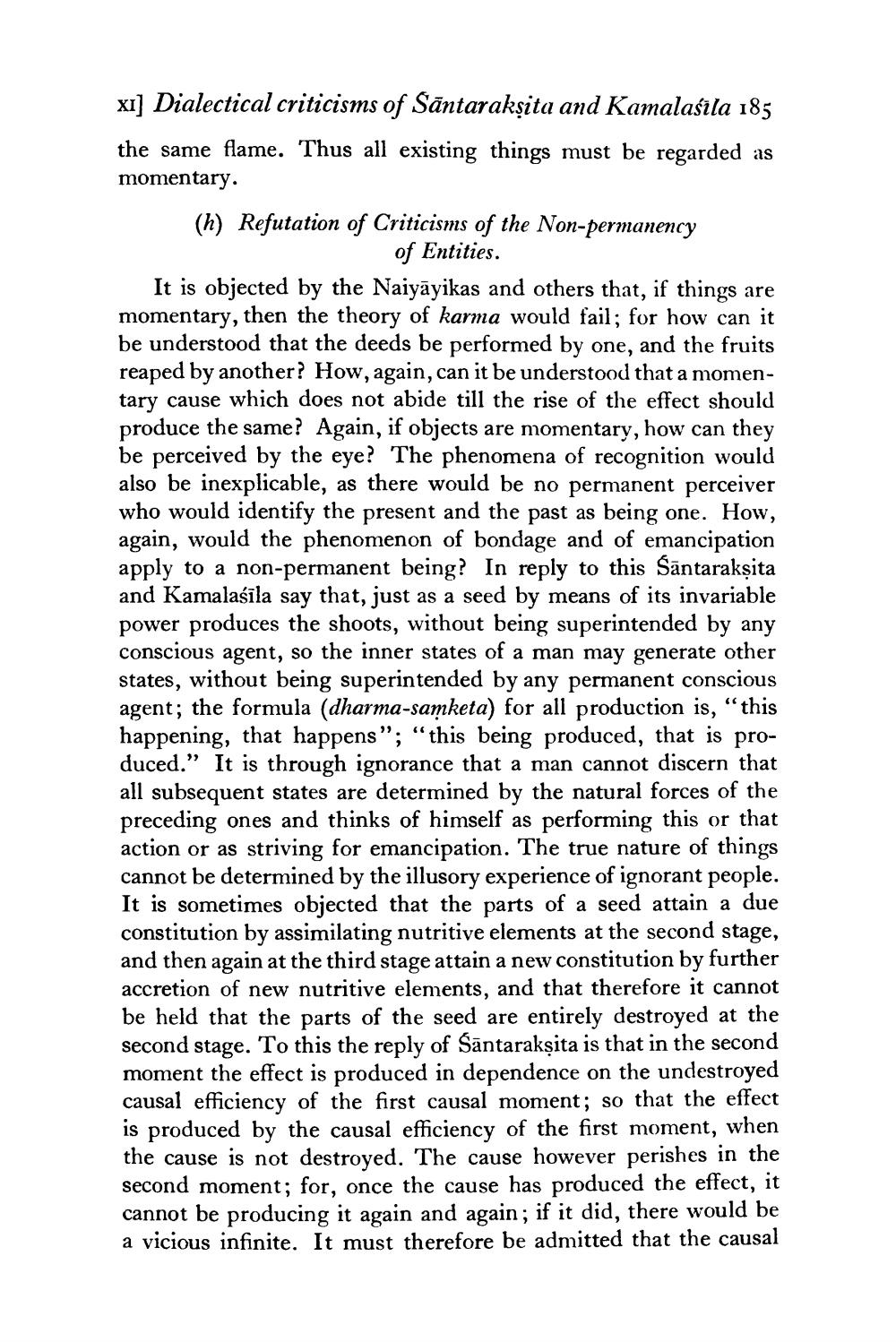________________
xi] Dialectical criticisms of Sāntarakṣita and Kamalaśila 185 the same flame. Thus all existing things must be regarded as momentary (h) Refutation of Criticisms of the Non-permanency
of Entities. It is objected by the Naiyāyikas and others that, if things are momentary, then the theory of karma would fail; for how can it be understood that the deeds be performed by one, and the fruits reaped by another? How, again, can it be understood that a momentary cause which does not abide till the rise of the effect should produce the same? Again, if objects are momentary, how can they be perceived by the eye? The phenomena of recognition would also be inexplicable, as there would be no permanent perceiver who would identify the present and the past as being one. How, again, would the phenomenon of bondage and of emancipation apply to a non-permanent being? In reply to this Sāntarakṣita and Kamalaśīla say that, just as a seed by means of its invariable power produces the shoots, without being superintended by any conscious agent, so the inner states of a man may generate other states, without being superintended by any permanent conscious agent; the formula (dharma-samketa) for all production is, “this happening, that happens”; “this being produced, that is produced.” It is through ignorance that a man cannot discern that all subsequent states are determined by the natural forces of the preceding ones and thinks of himself as performing this or that action or as striving for emancipation. The true nature of things cannot be determined by the illusory experience of ignorant people. It is sometimes objected that the parts of a seed attain a due constitution by assimilating nutritive elements at the second stage, and then again at the third stage attain a new constitution by further accretion of new nutritive elements, and that therefore it cannot be held that the parts of the seed are entirely destroyed at the second stage. To this the reply of Sāntarakṣita is that in the second moment the effect is produced in dependence on the undestroyed causal efficiency of the first causal moment; so that the effect is produced by the causal efficiency of the first moment, when the cause is not destroyed. The cause however perishes in the second moment; for, once the cause has produced the effect, it cannot be producing it again and again; if it did, there would be a vicious infinite. It must therefore be admitted that the causal




